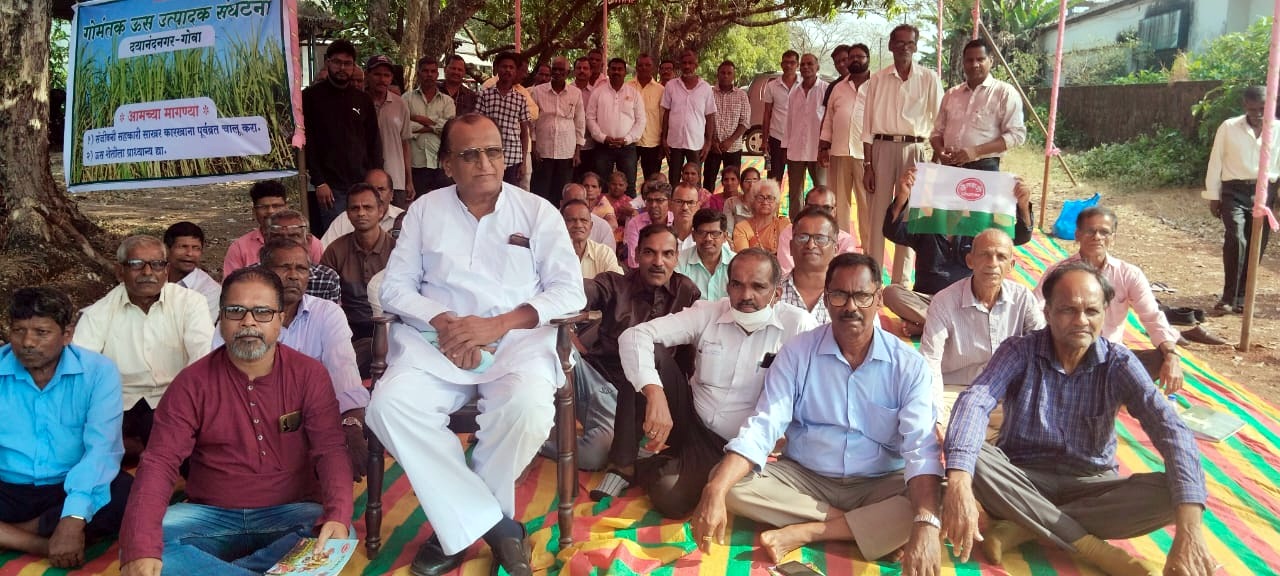
Sugarcane farmers on an indefinite strike at Dharbandora, demanding the revival of Sanjivani Sugar Factory.
Photo Credits: The Goan/File photo
PANAJI
Following a clarion call given by Union Minister Nitin Gadkari to sugar factories to make a shift to conversion of sugar into ethanol - in line with the realities of changing times and the needs of the nation, the Goa government mooted a plan to convert the State’s sole sugar factory into an ethanol-producing unit.
After the government shut down the five-decade-old Sanjivani Sahakari Sakhar Karkhana (SSSK) factory in 2019 on grounds of recurring mechanical problems, non-availability of spare parts and shortage of local sugarcane, the government considered switching over to an ethanol plant. However, in the absence of raw materials - sugarcane and grains - its revival is very difficult now.
According to the experts, with the existing factory in a dilapidated condition, an attempt to rebuild a new plant - with no raw material in hand - could mean spending crores of rupees to construct a "white elephant".
“From where are you going to get cane and grains for the ethanol plant? Revival of the factory is just next to impossible in the present condition. Will have to explore other ideas,” former administrator Satej Kamat said.
A senior official at the PPP department said, “This is one of the reasons why no bidders are coming forward for the ethanol project. The sugarcane production in the State is not as required and import of cane is not feasible considering the large number of sugar mills in the neighbouring States.”
In 2021, the government sought the expertise of the Deccan Sugar Technologists Association (India), Pune, to prepare a detailed project report (DPR) for the production of ethanol, which was approved by the government.
In its report, the consultant pegged the total cost of the project at Rs 80 crore, with the majority amount to be spent on erecting existing machinery with new machinery and technologies and working capital.
Ethanol plants require two types of raw materials - sugarcane and grains. It said that in the initial period, the agriculture department needed to work on sugarcane cultivation to increase the supply of sugarcane, and then in the next five years, sugarcane crushing will increase.
“Deccan Sugar in their report was very clear that with just 100 or 120 days cane season, the plant won’t work… The season days will have to be increased to 150-200 in the two to three years’ time once the plant is put in place,” sources said.
The government, through its PPP department, twice invited Request for Qualification (RFQ) bids. While the first RFQ was released in January, the second was in May, this year. However, not a single bidder showed interest.
Sources at the Secretariat level confirmed that the PPP department, following directions from the Chief Minister, has considered keeping the project on hold. “The department just cannot go on inviting RFQ to see no response. We will have to wait for some time,” sources said.